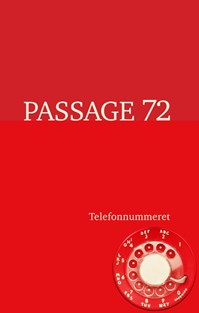Den arabiske telefon - Krimiparodier og litterær åndsnærværelse hos marokkaneren Driss Chraïbi
DOI:
https://doi.org/10.7146/pas.v29i72.19754Nøgleord:
Driss Craïbi, telefon, Krimiparodi,Resumé
Steen Bille Jørgensen: “The Arab Telephone: Crime Parodies and Literary Presence of Mind in the Work of Moroccan Novelist Driss Craïbi”
Telephones play a central role in the work of the Moroccan novelist Driss Chraïbi. As a francophone writer spending most of his life in France, the writer’s meta-literary crime parodies about Inspecteur Ali integrate telephones at a structural and thematic level to invite the reader to reflect on the relation between the oral Arabic culture and the western crime novel. With a point of departure in the French notion of “téléphone arabe” (Chinese whispers) the poetics of the novel is focusing on its capacity to deal indirectly with the experience of proximity and distance. This problem appears already in the partly autobiographical La Civilisation ma mère and is developed throughout the work. Though Chraïbi critically points to ideological aspects of a paternalistic culture, his development of the Inspecteur Ali figure mainly leads the occidental reader to consider the importance of bodily experience and the spoken word (a fortiori oral literature) with its imaginary-fantasmagorical and fictional implications. Thus the telephone appears to be an ambiguous device that on the one hand provokes fragmentation – mainly related to the western civilisation – but on the other hand points to the foundation of an ethos related to listening and more generally an individual presence of mind.
Downloads
Publiceret
Citation/Eksport
Nummer
Sektion
Licens
Forfattere, der publicerer deres værker via dette tidsskrift, accepterer følgende vilkår:
- Forfattere bevarer deres ophavsret og giver tidsskriftet ret til første publicering, samtidigt med at værket efter publiceringen er omfattet af en Creative Commons Attribution-licens, der giver andre ret til at dele værket med en anerkendelse af værkets forfatter og første publicering i nærværende tidsskrift.
- Forfattere kan indgå flere separate kontraktlige aftaler om ikke-eksklusiv distribution af tidsskriftets publicerede version af værket (f.eks. sende det til et institutionslager eller udgive det i en bog), med en anerkendelse af værkets første publicering i nærværende tidsskrift.
- Forfattere har ret til og opfordres til at publicere deres værker online (f.eks. i institutionslagre eller på deres websted) forud for og under manuskriptprocessen, da dette kan føre til produktive udvekslinger, samt tidligere og større citater fra publicerede værker (se The Effect of Open Access).





